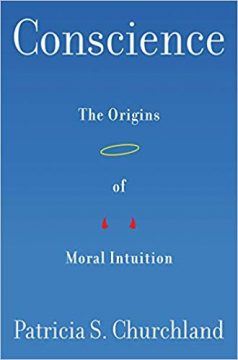Hope Reese in UnDark:
 Patricia S. Churchland is a key figure in the field of neurophilosophy, which employs a multidisciplinary lens to examine how neurobiology contributes to philosophical and ethical thinking. In her new book, “Conscience: The Origins of Moral Intuition,” Churchland makes the case that neuroscience, evolution, and biology are essential to understanding moral decision-making and how we behave in social environments.
Patricia S. Churchland is a key figure in the field of neurophilosophy, which employs a multidisciplinary lens to examine how neurobiology contributes to philosophical and ethical thinking. In her new book, “Conscience: The Origins of Moral Intuition,” Churchland makes the case that neuroscience, evolution, and biology are essential to understanding moral decision-making and how we behave in social environments.
The way we reach moral conclusions, she asserts, has a lot more to do with our neural circuitry than we realize. We are fundamentally hard-wired to form attachments, for instance, which greatly influence our moral decision-making. Also, our brains are constantly using reinforcement learning — observing consequences after specific actions and adjusting our behavior accordingly.
Churchland, who teaches philosophy at the University of California, San Diego, also presents research showing that our individual neuro-architecture is heavily influenced by genetics: political attitudes, for instance, are 40 to 50 percent heritable, recent scientific studies suggest.
While some critics are skeptical that neuroscience plays an important role in morality, and argue that Churchland’s brand of neurophilosophy undermines widely accepted philosophical principles, she insists that she is a philosopher, first and foremost, and that she isn’t abandoning traditional philosophical inquiry as much as expanding its scope.
More here.
